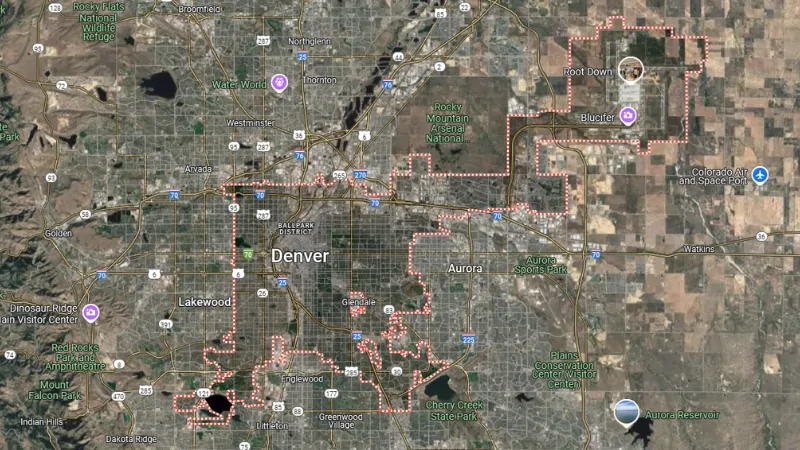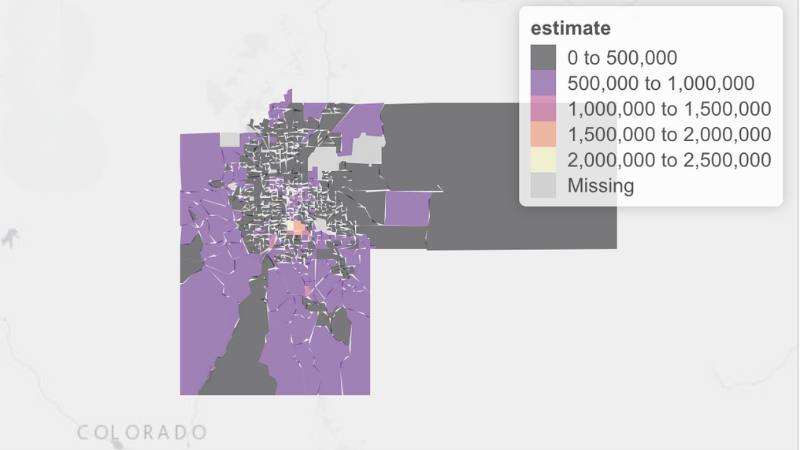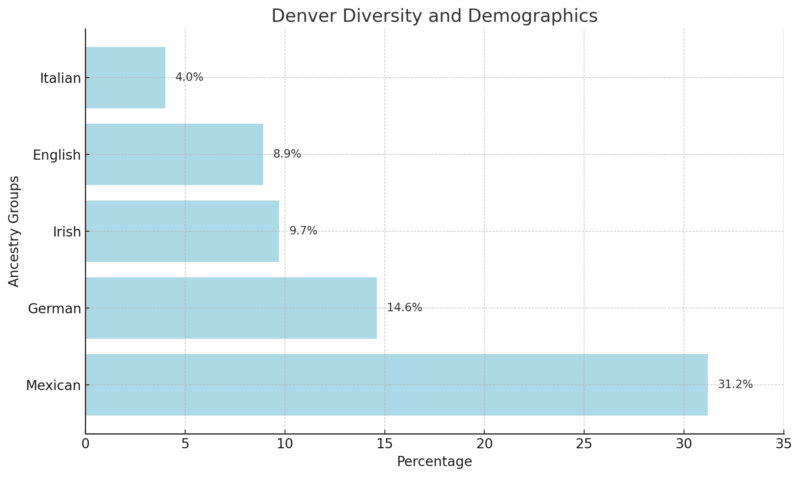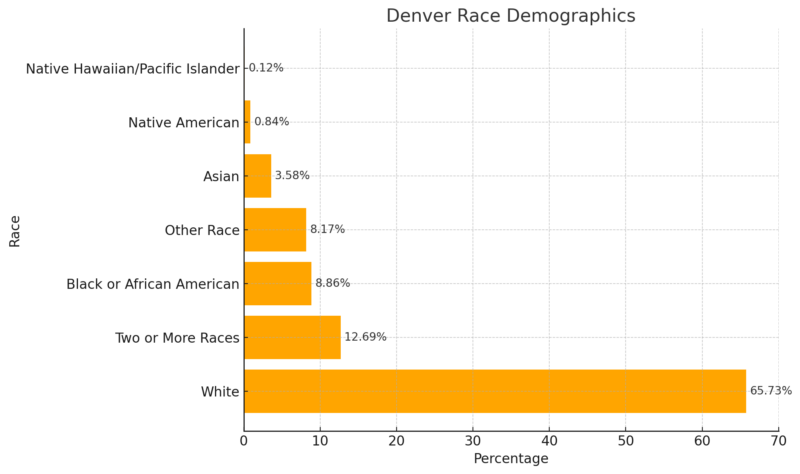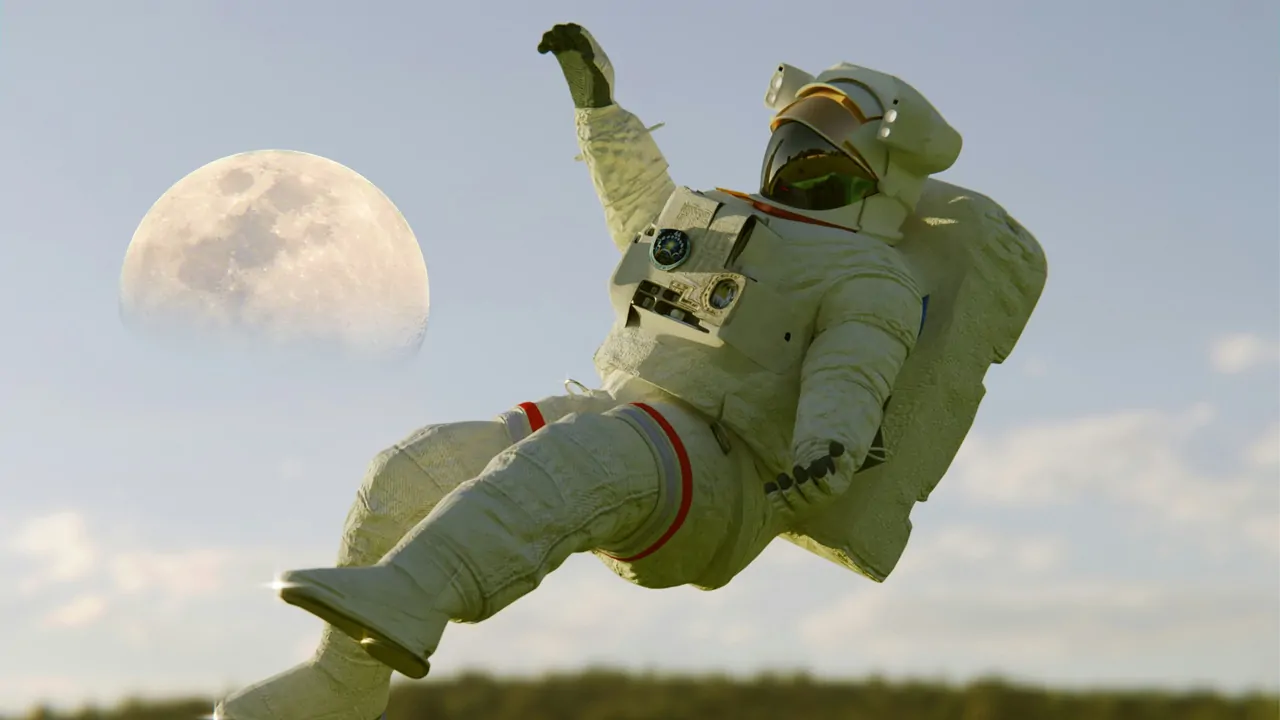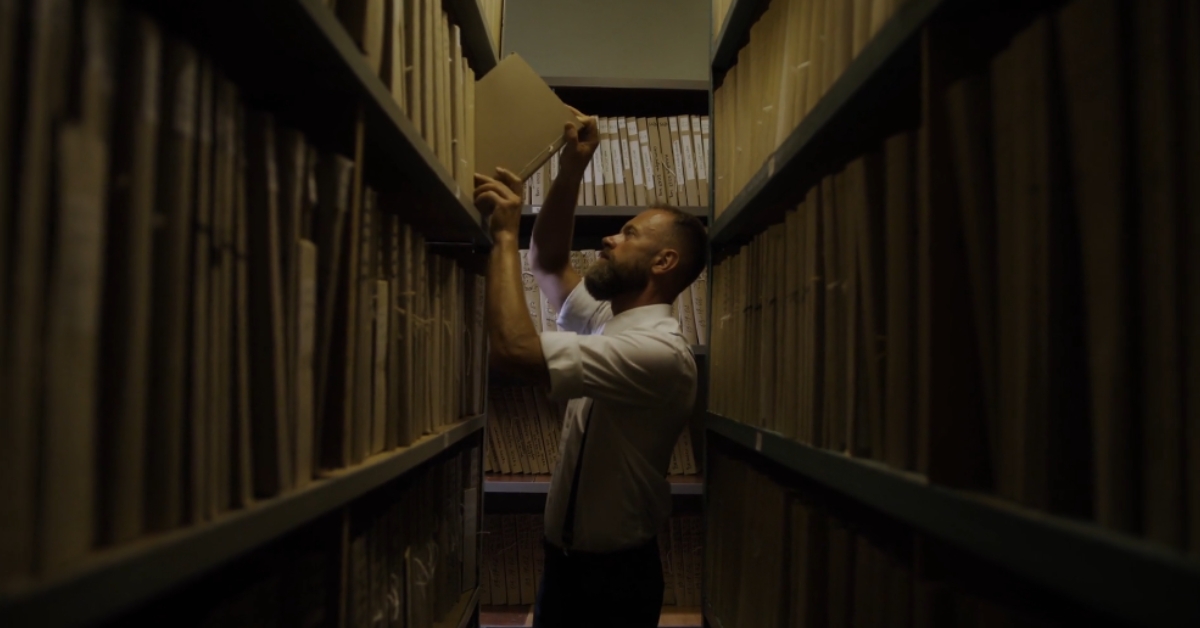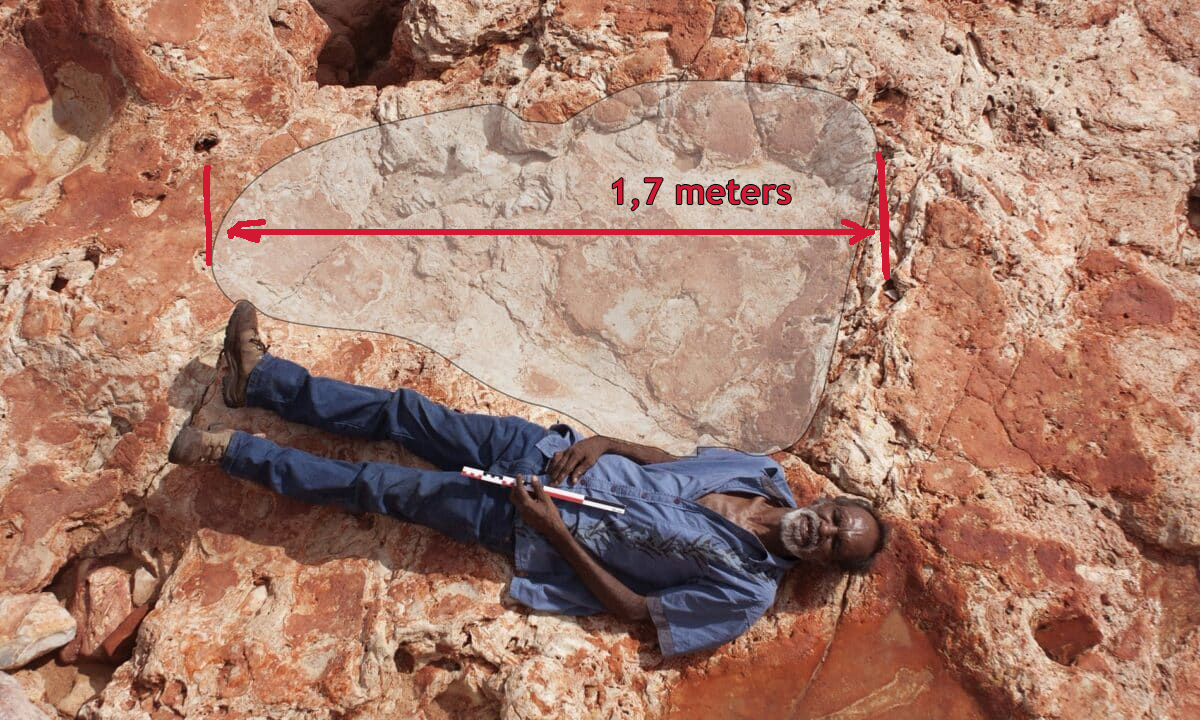Denver, officially the City and County of Denver, is the largest city and the capital of Colorado, located in the central United States.
It is situated at the meeting point of Cherry Creek and the South Platte River, just east of the Rocky Mountains and at the western edge of the Great Plains.
The city’s elevation is precisely one mile (1,609 meters or 5,280 feet) above sea level, giving it the nickname “Mile High City.”
The Colorado State Capitol, a landmark in Denver, is constructed from Colorado rose onyx, a rare type of stone used entirely in the building’s construction.
The dome is covered in 24-karat gold leaf.
Denver’s origins trace back to 1858 when gold was discovered in the Rockies, attracting miners, settlers, and entrepreneurs to the area.
This influx of people led to the establishment of a mining settlement that would become Denver. By 1861, Denver became part of the newly created Colorado Territory.
It was designated as the territory’s permanent government seat in 1867. When Colorado joined the Union as the 38th state on August 1, 1876, Denver was already a prominent city.
As of 2025, Denver’s population was approximately 716,234, with about 2,963,000 people in the larger Denver-Aurora-Lakewood metropolitan area, accounting for over half of Colorado’s population.
Its economy benefits from its central location, serving as a major transportation and distribution hub for Colorado and neighboring states within a 500-mile (800 km) radius.
Table of Contents
ToggleGeography Map of Denver
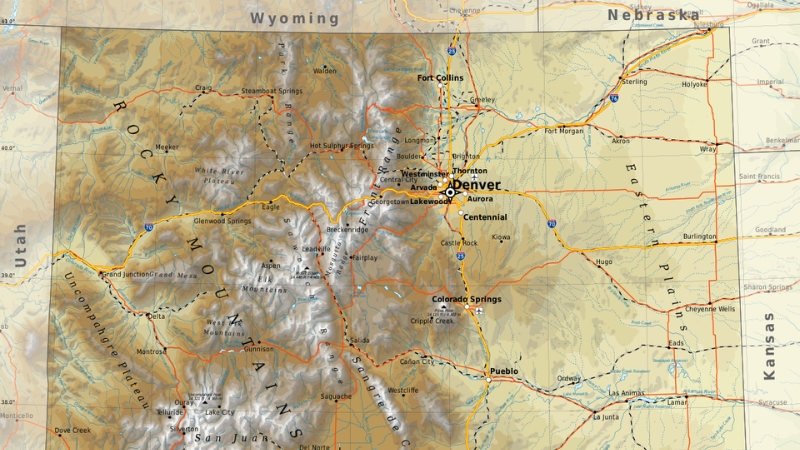
Denver, the capital and largest city of Colorado, is centrally located within the Front Range Urban Corridor, bordered by the Rocky Mountains to the west and the High Plains to the east.
Its terrain consists of plains in the city center with hilly areas to the north, west, and south.
Denver is unique as the only state capital in the U.S. that is a consolidated city-county.
At the 2020 census, it spanned 99,025 acres (400.7 km²), including 1,057 acres (4.3 km²) of water. It is surrounded by Adams, Arapahoe, and Jefferson Counties.
Elevation and Nickname
Known as the “Mile-High City,” Denver’s official elevation is exactly 5,280 feet (1,609 meters) above sea level, measured at a benchmark on the State Capitol steps.
The city’s elevation varies between 5,130 and 5,690 feet (1,560–1,730 meters).
Neighborhoods
City has 78 official neighborhoods established for planning and administrative purposes. While some names like LoDo (Lower Downtown) and RiNo (River North) are popular, larger unofficial designations such as Northside and Westside are less commonly recognized. The Central Park neighborhood, formerly Stapleton, is one of its newer developments.
Denver is bordered by the following:
- North: Adams County, Berkley, Northglenn, Commerce City
- West: Jefferson County, Arvada, Wheat Ridge, and others
- East: Aurora, Adams County
- South: Arapahoe County, Littleton, Englewood, and more
Climate
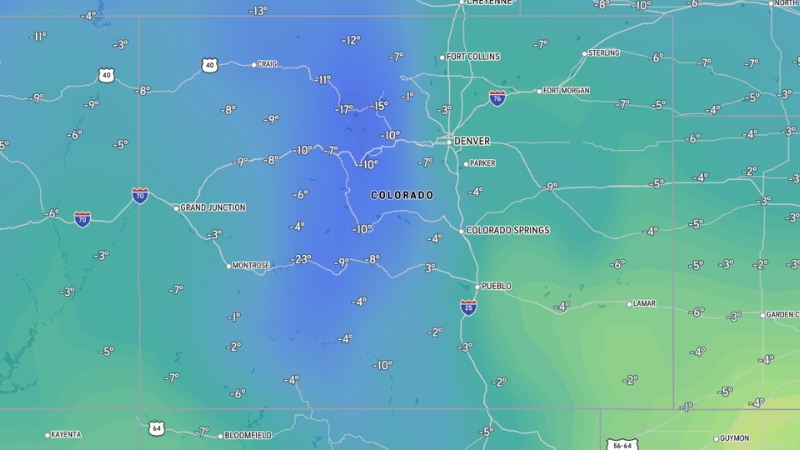
Denver features a continental semi-arid climate (BSk), characterized by low humidity and about 3,100 hours of sunshine annually. The city experiences four distinct seasons and rapid weather changes due to its location near the Rocky Mountains.
- Summers: Warm to hot, with occasional severe thunderstorms. July is the warmest month (average high: 89.9 °F or 32.2 °C).
- Winters: Variable, with snow and cold alternating with warmer Chinook winds. December is the coldest month (average high: 44 °F or 6.7 °C). Extreme lows can reach −24 °F (−31 °C).
- Snowfall: Denver averages 53.5 inches (136 cm) annually, with measurable snow possible from October through April.
- Extremes: Temperature ranges from −29 °F (−34 °C) to 105 °F (41 °C).
😱😱 incredible pics of a tornado spotted near Denver tonight (photos from Firestone- about 30 mins outside of Denver). Also- standing in the sidewalk is NOT a safe place during a tornado 😬 pic.twitter.com/6ic9ujczoi — Bree Sunshine Smith ☀️ (@NC5_BreeSmith) June 8, 2021 Denver, officially the City and County of Denver, is the capital and largest city of Colorado. It is the most populous city within a 500-mile radius, with a 2025 population of 716,234, which has seen a slight decline (-0.05% annually) since the 2020 census population of 717,606 according to the World Population Review. The city boasts an average household income of $122,771 and a poverty rate of 11.7%. The median age is 34.9 years, with little difference between males and females. Denver’s growth has been driven by consistent migration and economic development. From 2011 to 2012, the city grew at a rate of 2.42%, bolstered by employment opportunities and new residential developments. Denver’s position as an attractive destination for young professionals (ages 25-34) highlights its reputation as a thriving metropolitan area. Continued investment in urban infrastructure and greenfield developments ensures that Denver remains a magnet for new residents. The population of Denver has seen fluctuating trends in recent years, with a slight decline (-0.05% annually) since 2020. However, Denver remains a central hub in Colorado’s population expansion, with the wider metropolitan area projected to grow to 4.1 million by 2040. This growth highlights Denver’s continued significance as a regional economic and cultural center despite recent minor declines. Denver is a culturally rich city, with a significant Mexican-American community comprising over 31% of the population. Other prominent ancestries include German, Irish, English, and Italian. Nearly a quarter of the population speaks Spanish at home, reflecting the city’s strong Hispanic and Latino heritage. The racial composition is predominantly White (65.73%), but Denver is becoming increasingly diverse, with notable percentages of individuals identifying as multiracial, Black, and Asian. Founded during the 1858 Gold Rush, Denver grew rapidly in its early decades due to its strategic location and economic opportunities. By the late 19th century, the railway connection solidified its role as a regional hub. The city experienced explosive growth in population, particularly between 1870 and 1890, as it transitioned from a frontier town to a modern urban center. Today, Denver continues to evolve, with urban densification and redevelopment playing significant roles in its modern growth. An iconic building with its gold-plated dome, the Capitol offers panoramic views of the city and mountains. Its 13th step is exactly one mile above sea level, giving Denver its nickname, “Mile-High City.”
Month
Avg. High (°F)
Avg. Low (°F)
Precipitation (in)
Snowfall (in)
January
45
19
0.4
7.0
February
46
20
0.4
7.7
March
56
28
0.9
11.3
April
62
34
1.7
8.8
May
71
44
2.2
1.1
June
83
53
1.9
Trace
July
90
60
2.1
0.0
August
88
58
1.6
0.0
September
80
50
1.4
1.3
October
65
37
1.0
4.0
November
53
26
0.6
8.7
December
44
18
0.4
8.1
Severe Weather and Tornadoes
Tornadoes are rare in Denver’s urban core but more common in eastern suburbs and near Denver International Airport due to the Denver Convergence Vorticity Zone (DCVZ). Denver is also prone to hailstorms, including three of the top 10 costliest in U.S. history.
Water Resources in Colorado
Type
Details
Total Water Area
~2,482 square miles (6,429 km²)
Major Rivers
Colorado River, Arkansas River, South Platte River
Reservoirs
Dillon Reservoir, Blue Mesa Reservoir, Horsetooth Reservoir
Average Annual Precipitation
15–25 inches (varies by region)
Water Management
Colorado Water Conservation Board oversees water usage and planning
Sand and Desert-Like Features in Colorado
Type
Details
Sand Dunes
Great Sand Dunes National Park and Preserve
Largest Sand Dune
Star Dune (~750 feet tall)
Desert Areas
Colorado Plateau (western Colorado)
Soil and Sand Composition
Fine quartz and volcanic ash
Climate in Desert Regions
Semi-arid to arid, with large temperature variations
Green Parks and Spaces in Colorado
Type
Details
Total State Parks
43 state parks
National Parks
Rocky Mountain National Park, Mesa Verde National Park
Urban Green Spaces
Over 200 parks in Denver alone
Largest Park
Cherry Creek State Park (Denver Metro Area)
Protected Lands
~36% of Colorado’s land is federally protected
Recreational Activities
Hiking, biking, picnicking, wildlife observation
Population Map
Denver Population and Growth
Year
Population
Growth Rate
Notes
2025
716,234
-0.05% (annual)
Current population
2020
717,606
-0.19% since census
Census population
2016
~680,000
Rapid growth period
Estimated
2013
3.15 million
Denver-Aurora-Boulder CSA population
2040
4.1 million
Projected metro area population
Denver Diversity and Demographics
Historical Growth and Development
Event/Period
Details
1858
Founded as Denver City during the Gold Rush
1861
Colorado Territory created, and Denver City incorporated
1867
Named Territorial Capital
1870
Connected to the railway
1870-1880
Population increased by 648.7%
1880-1890
Nearly 200% population growth
21st Century
Significant urban densification and metro expansion
Attractions of Denver
Colorado State Capitol
LoDo (Lower Downtown)
Denver’s oldest neighborhood, rich in history and charm. It features historic architecture, vibrant nightlife, and numerous restaurants and shops.
Denver Mint
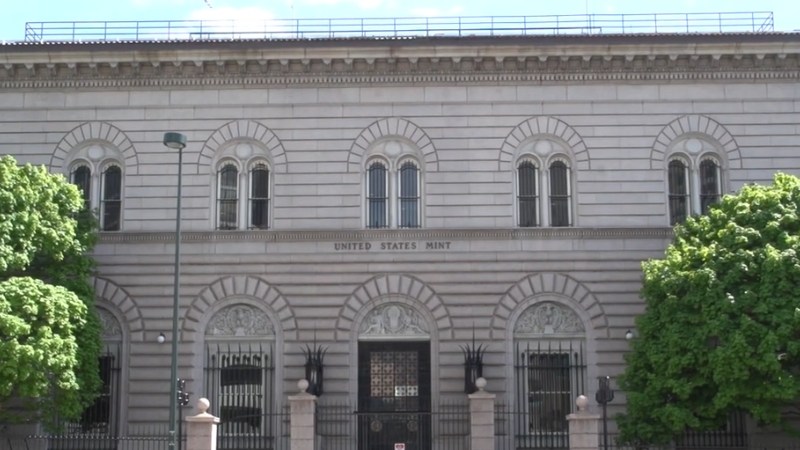
Established in 1897, the Denver Mint produces billions of coins annually. Visitors can take guided tours to learn about its history and coin production process.
Brown Palace Hotel
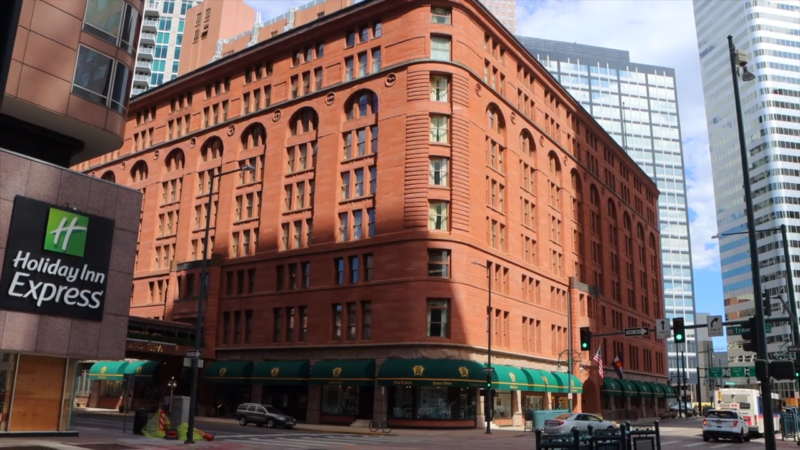
Opened in 1892, this is Denver’s second-oldest operating hotel. Known for its luxurious accommodations and Victorian architecture, it remains a staple of Denver’s hospitality scene.
Denver Art Museum (DAM)
NOW OPEN! “Desert Rider: Dreaming in Motion” is on view at the DAM through September 24, 2023, and is included in general admission, which is free for everyone 18 and under every day, as well as museum members. Learn more, and plan your visit, here: https://t.co/ERf0GBeh5v pic.twitter.com/mAhHq0CxXF
— Denver Art Museum (@DenverArtMuseum) July 10, 2023
One of the largest art museums in a 500-mile radius, DAM is renowned for its American Indian art and Modern & Contemporary collections. It also features Linda, a famous hyperrealistic sculpture by Denver artist John DeAndrea.
Cathedral Basilica of the Immaculate Conception
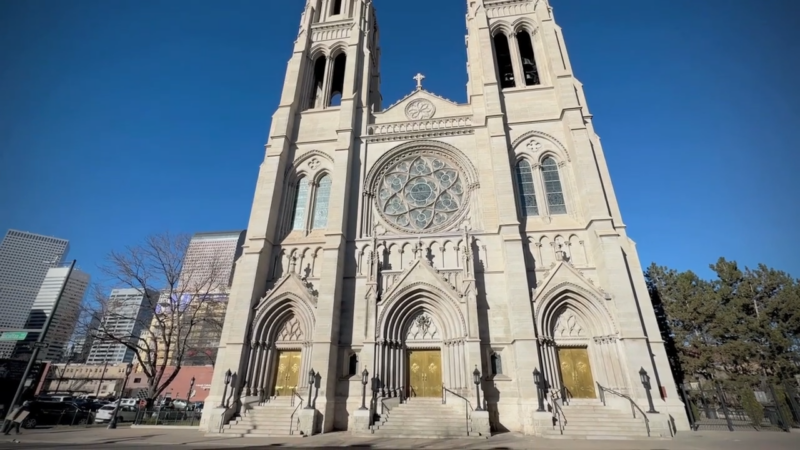
This stunning French Gothic-style cathedral was constructed in the early 20th century. It is a spiritual and architectural landmark in Denver.
16th Street Mall
A bustling pedestrian-friendly shopping and entertainment area in downtown Denver. With over 300 stores and 50 restaurants, it is a must-visit for shopping, dining, and live entertainment.
Avenue Theater
View this post on Instagram
A post shared by West Plains School District (@westplainsschooldistrict)
Known for comedies, musicals, and plays, this theater is also home to the World Humor Organization (WHO). It is a hub for lighthearted and interactive performances.
Historic Elitch Theatre
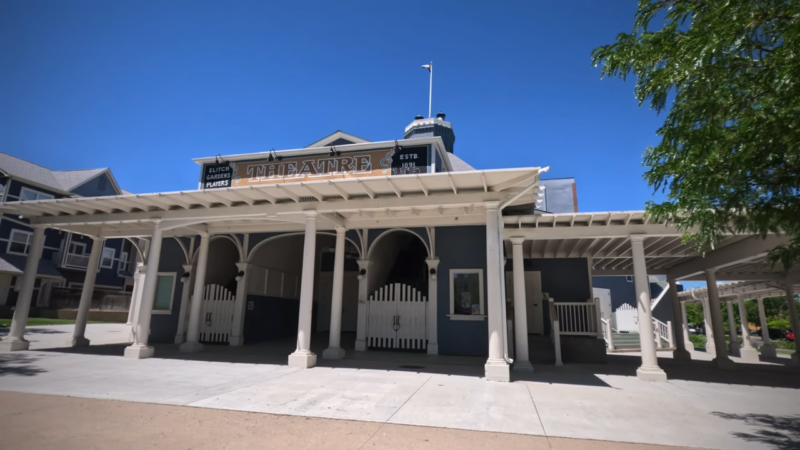
A historic venue often referred to as “one of the cradles of American drama.” It hosts workshops and theatrical productions in an iconic setting.
Ellie Caulkins Opera House
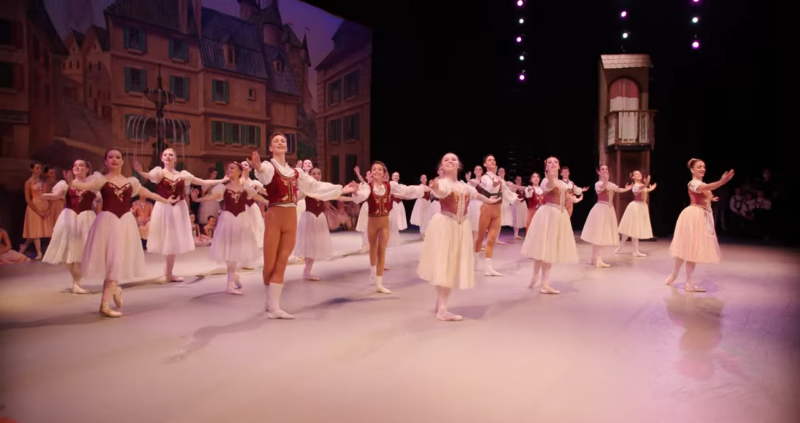
Part of the Denver Performing Arts Complex, it is home to Opera Colorado. This venue also hosts performances in the Buell Theatre and Boettcher Concert Hall, a symphony hall where the audience surrounds the stage.
Denver Zoo
Opened in 1896, it is Denver’s most popular paid attraction. The zoo features a diverse range of animals and educational programs for all ages.
Denver Botanic Gardens
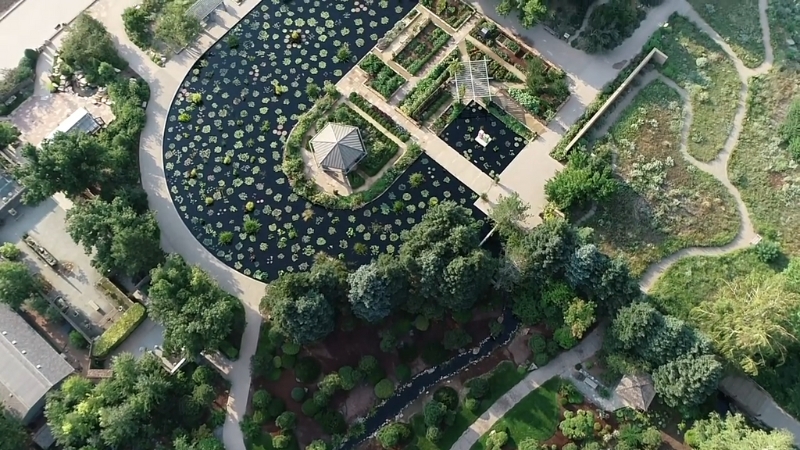
These gardens house the largest collection of cold temperate and Rocky Mountain flora in North America. They offer a serene environment for plant enthusiasts and nature lovers.
Civic Center Park
A central square surrounded by cultural landmarks such as the Denver Art Museum, the Colorado State Capitol, and the Denver Mint. The park serves as a hub for public events and leisure.
Elitch Gardens
A family-friendly theme and water park located in downtown Denver. It offers thrilling rides and refreshing water attractions, making it a favorite summer destination.
Coors Field
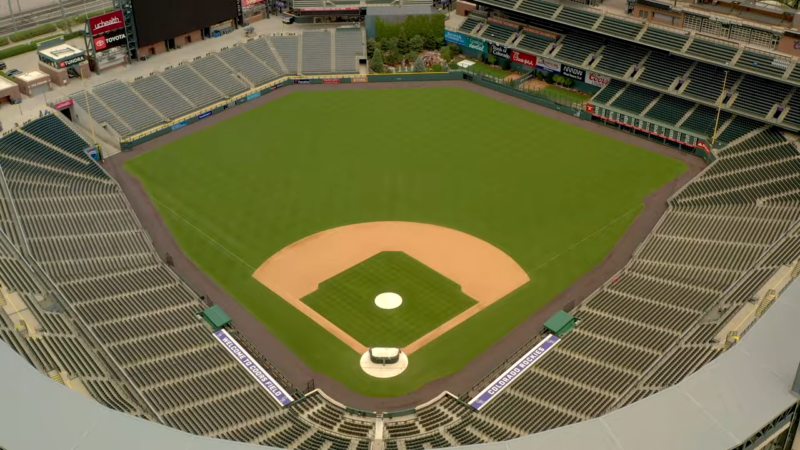
Home to the Colorado Rockies, this baseball park offers spectacular views of the Rocky Mountains. It is a must-visit for sports fans and families.
Empower Field at Mile High
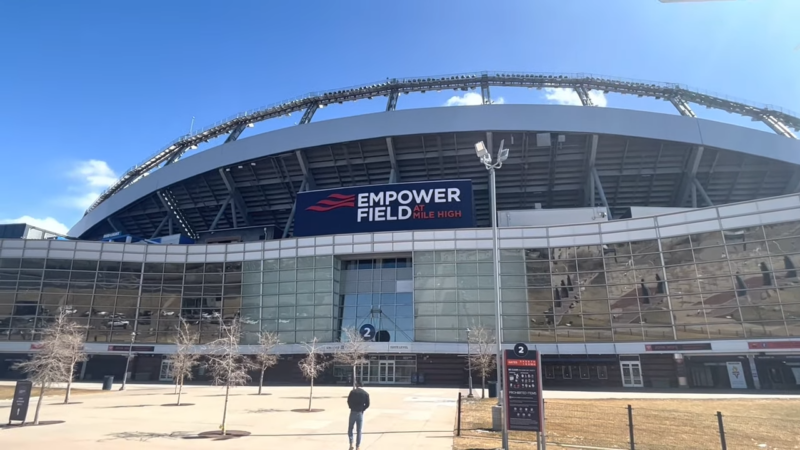
A football stadium that serves as the home of the Denver Broncos. Known for its electrifying atmosphere during NFL games.
Ball Arena (formerly Pepsi Center)
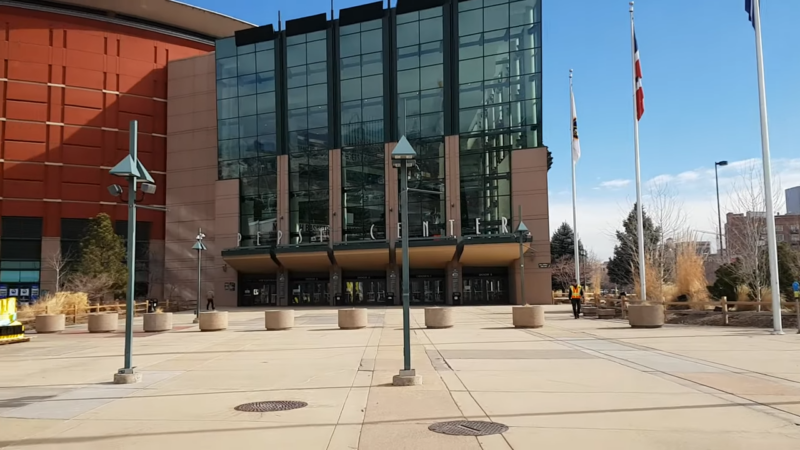
A multi-purpose arena hosting the Denver Nuggets (basketball), Colorado Avalanche (hockey), and concerts by top artists.
Rocky Mountains at Loveland Ski Area
Located within Arapahoe National Forest, this ski area offers world-class skiing and snowboarding. It is a perfect outdoor escape for adventure enthusiasts.


